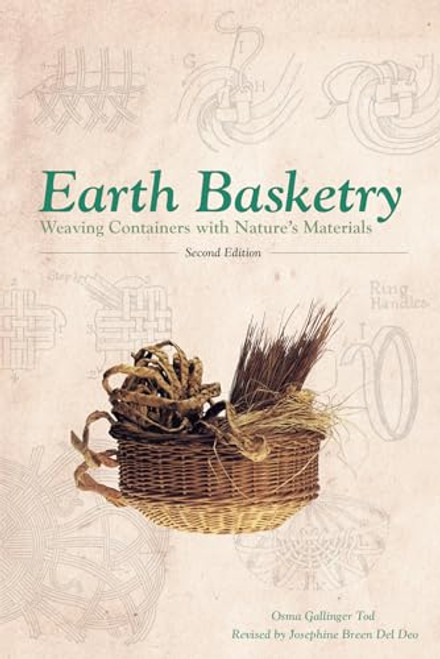The methods of Indian basket weaving explained in this excellent manual are the very ones employed by native practitioners of the craft. members of the Navajo School of Basketry have set down their secrets in clear and simple language, enabling even the beginner to create work that can rival theirs in grace, design, and usefulness.
Beginning with basic techniques, choice of materials, preparation of the reed, splicing, the introduction of color, principles and methods of design, shaping the basket and weaves from many cultures, such as Lazy Squaw, Mariposa, Taos, Samoan, Klikitat, and Shilo, each accompanied by specific instructions. There are suggestions for the weaving of shells, beads, feathers, fan palms, date palms, and even pine needles, and recipes for the preparation of dyes.
Examples of each type of basket are illustrated by photographs, often taken from more than one angle so that the bottom can be seen as well as the top and sides. Close-up photography of the various types of stitching, especially at the crucial stage of beginning the basket, is an invaluable aid to the weaver. In addition, the authors have provided line drawings which are exceptionally clear magnifications of the various weave patterns.
Anyone who follows the lessons contained in this book will have a knowledge of basketry unattainable in any other way. They are so lucid and complete that the amateur as well as the experienced weaver will be able to manufacture baskets distinguishable from authentic native articles only in that they were not woven by Indians. For those who merely seek a broader knowledge of American Indian arts, the book provides a comprehensive introduction to the subject of basketry.
Beginning with basic techniques, choice of materials, preparation of the reed, splicing, the introduction of color, principles and methods of design, shaping the basket and weaves from many cultures, such as Lazy Squaw, Mariposa, Taos, Samoan, Klikitat, and Shilo, each accompanied by specific instructions. There are suggestions for the weaving of shells, beads, feathers, fan palms, date palms, and even pine needles, and recipes for the preparation of dyes.
Examples of each type of basket are illustrated by photographs, often taken from more than one angle so that the bottom can be seen as well as the top and sides. Close-up photography of the various types of stitching, especially at the crucial stage of beginning the basket, is an invaluable aid to the weaver. In addition, the authors have provided line drawings which are exceptionally clear magnifications of the various weave patterns.
Anyone who follows the lessons contained in this book will have a knowledge of basketry unattainable in any other way. They are so lucid and complete that the amateur as well as the experienced weaver will be able to manufacture baskets distinguishable from authentic native articles only in that they were not woven by Indians. For those who merely seek a broader knowledge of American Indian arts, the book provides a comprehensive introduction to the subject of basketry.











